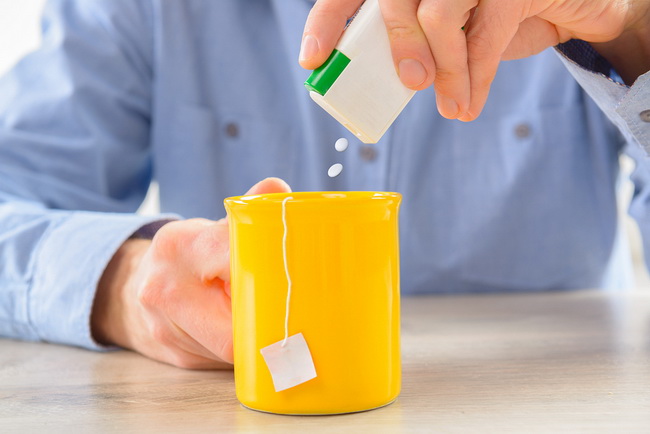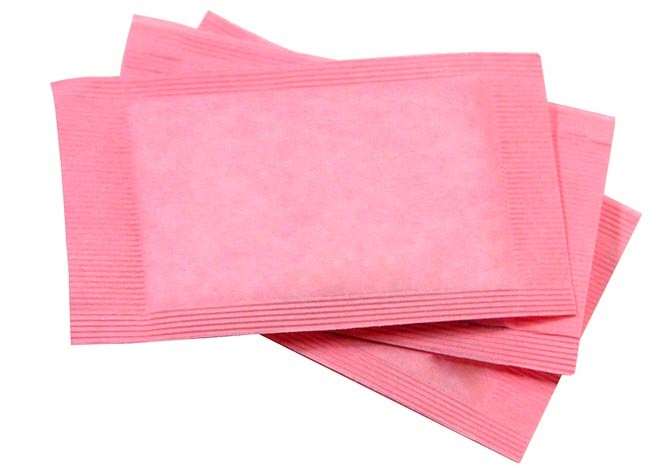- Make It Yourself Lavender Heart-Shaped Bath Bombs!
- 20 Things You Never Knew About “Down There”
- 12 Best Foods For Those Suffering From Arthritis Pain
- 12 Personal Hygiene Mistakes Almost Everyone Makes (Mom Never Told You About #4!)
- 15 Medicinal Plants And Herbs From The Cherokee People
- 12 Mind-Blowing Benefits Of Drinking Coconut Water During Pregnancy
- 12 Outstanding Winter Foods That Won’t Fatten You Up Like A Christmas Turkey
Artificial Sweeteners May Cause Diabetes

Photo credit: bigstock
There has been so much written about the dangers of artificial sweeteners and still, a large section of the population continues to believe that these products are harmless and are a safe alternative to sugar.
For those of you who reach for artificial sweeteners instead of sugar because you think it’s safer or that they are somehow ‘better’, you might find that you are simply trading the devil you know ( sugar) for the devil you don’t know ( sucralose, saccharin, or aspartame).
Perhaps the latest research study will turn the tide and convince the skeptics. Recent research, conducted at the Weizmann Institute of Science in Israel, shows that there is a link between the use of the three most common artificial sweeteners and drastic changes in the gut bacteria of humans. This can increase the risk of metabolic syndrome as well as Type 2 diabetes. The irony of this matter is that many people use artificial sweeteners in order to avoid diabetes or lessen their symptoms in the first place.
This new study, published in the journal Nature, state that artificial sweeteners are considered to be safe by many and yet, the supporting scientific data shows that consumption of these chemical formulates is the driving force behind the development of an intolerance of gluten.
The study used the top three most popular artificial sweeteners, aspartame, saccharin, and sucralose. Researchers found that when they transplanted the gut bacteria from mice that were fed artificial sweeteners to mice that had never had artificial sweeteners, led to those mice having higher blood sugar levels. Genetic testing discovered that the gut bacteria itself was changed by these artificial sweeteners and those changes could account for the rise in blood sugar levels.
SEE ALSO: Is Stevia Safe?
In fact, this study showed that all three of these chemical sweeteners were found to actually later the blood sugar levels of mice more than plain old table sugar did!
This study had several parts including:
- One study that involved 400 people showed that those who consumed these artificial sweeteners were more likely to have problems with blood sugar levels and had more trouble controlling them.
- Seven people, who in their normal diet did not consume artificial sweeteners, were followed very closely for one week as they were given controlled amounts of saccharine. Four of these seven people showed large increase in their blood sugar levels.
- Mice that were given saccharine saw large increases in blood sugar levels.
Continue to Page 2

Photo credit: bigstock
Researchers who surveyed humans that consumed these chemical sweeteners, they discovered that this intake of artificial sweeteners gave them higher risks of developing metabolic disease, and weight gain. In a small human study, it was found that some of the subjects had higher blood sugar levels and changes in their gut bacteria, but some subjects saw no changes in either. Scientists note that there needs to be larger studies to find out why these sweeteners affect some people so drastically while having no effect on others. It’s though that it might have something to do with a person’s overall gut bacteria that might explain why and how some people seem to be able to process these sweeteners.
Besides the potential of having higher blood sugar levels and a higher risk of metabolic syndrome, as this study shows, all three of these artificial sweeteners have long been linked in other studies to many other health dangers. Aspartame is made from the byproducts of genetically modified E. coli bacteria. (By products, in this case, means poop, friends. YUCK) Aspartame has been known to cause side effects such as depression, hyperactivity, blurred vision, severe and persistent headaches, seizures, and even hearing loss.
Sucralose (sold as Splenda) has been shown in studies to cause a much higher risk of developing leukemia, and saccharin (known to you as Sweet N Low) has been connected to a higher risk of bladder cancer more than a decade ago in studies done with animals.
Still, the FDA insists that these chemicals are safe for you to consume. Since artificial sweeteners cannot be digested, it’s assumed that they would simply pass safely out of the body, with no harm being done. Numerous studies, however, show that this simply is not true.
There is no safe artificial sweetener on the market today. NONE. When that sweet tooth hits you, try adding a bit of real fruit juice to your water, a touch of raw honey in your tea, organic date sugar, raw stevia leaves, or coconut crystals to your coffee or dessert.
All of the above sweeteners are natural and will give you that sweet taste you crave, without risking your health.
Sources:

































American Beverage Association
Dec 23, 2014 at 3:40 pm
It’s important to clarify several points of misinformation cited here. First, science has repeatedly reaffirmed that low-calorie sweeteners are safe, and can help cut calories and promote weight loss. A study published in the American Journal of Clinical Nutrition verifies this fact, as well as debunks the myth that diet beverages cause an increased preference for sweet foods and beverages: http://bit.ly/Ik4zjC. Moreover, the “research” referenced here claiming that low-calorie sweeteners change the balance of bacteria in the gut, and contribute to diabetes and weight gain are not substantiated by the body of science. Frankly, this study, which focused predominantly on rodents, is not at all a reflection of real life for humans. Bottom line: low-calorie sweeteners are a viable calorie-cutting tool and can be a part of a balanced diet and active, healthy life. – American Beverage Association